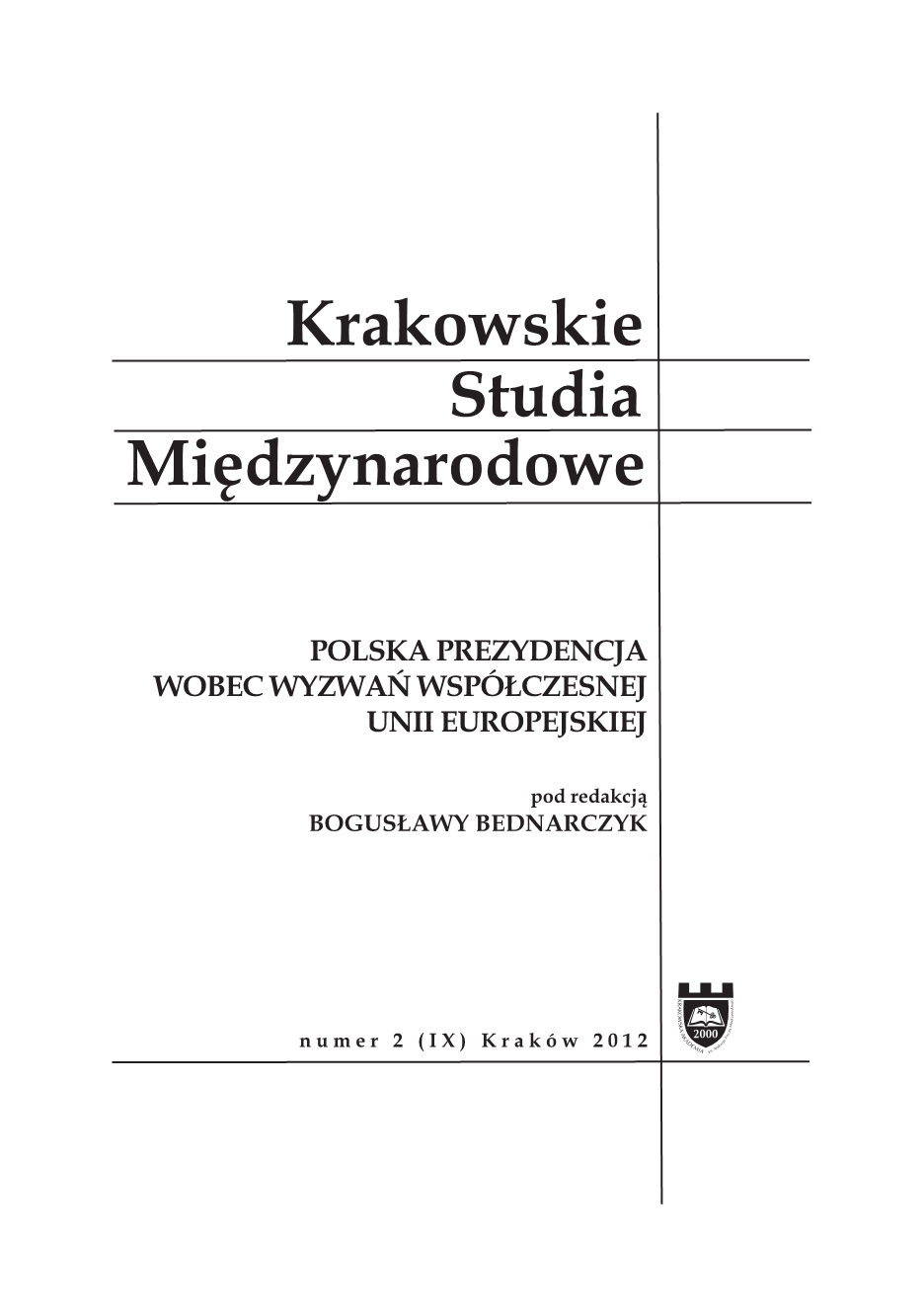Partnerstwo Wschodnie a polska prezydencja w Radzie UE
The Eastern Partnership and the Polish Presidency of the Council of the European Union
Author(s): Karolina SzwarcSubject(s): Governance, International relations/trade, EU-Accession / EU-DEvelopment
Published by: Oficyna Wydawnicza AFM Uniwersytetu Andrzeja Frycza Modrzewskiego w Krakowie
Keywords: Polish Presidency; Eastern Partnership
Summary/Abstract: The idea of involvement of the European Union in cooperation between the EU and its Eastern neighbours has been promoted by Poland since 1998. The strongest manifestation of this effort was the Polish-Swedish initiative under the name of „The Eastern Partnership”. In 2008 the European Council confirmed this project and thus it became the eastern dimension of European Neighbourhood Policy. Obtaining the EU acceptance for the Eastern Partnership was to an important extent a success of the Polish diplomacy. It proved that Poland was a strong partner in the EU, whose initiative and determination led to constructive action. A review and assessment of the activities and development of the Eastern Partnership was one of three priorities of the Polish UE presidency. The most important event during the Polish presidency was the summit meeting of the Eastern Partnership, that took place on 29 and 30 October 2011 in Warsaw. Despite the fact that it was not a full success, some important decisions for development of the Eastern Partnership were taken. For an assessment of the Polish presidency, a few factors should be taken into consideration. First of these is the role of the Council Presidency in the EU institutional and decisional system. Second is appraisal of political situation both in the EU Member States and the partner states. The authentic will of all parties to take constructive action is a condition sine quo non for the success of the Eastern Partnership. One of the important rule is more for more. It is means that the EU applies a set of conditionalities to the Eastern Partnership Member States, requiring the continuation of democratic reforms. The main objective of this article is to demonstrate the essence of the Eastern Partnership and to formulate an opinion, based upon the analysis of the activities and results of the programme. The article is divided in three parts: I. The essence of the Eastern Partnership; II. The Eastern Partnership as a Polish priority of the Polish presidency; III. The assessment of the Polish presidency.
Journal: Krakowskie Studia Międzynarodowe
- Issue Year: IX/2012
- Issue No: 2
- Page Range: 161-170
- Page Count: 10
- Language: Polish

